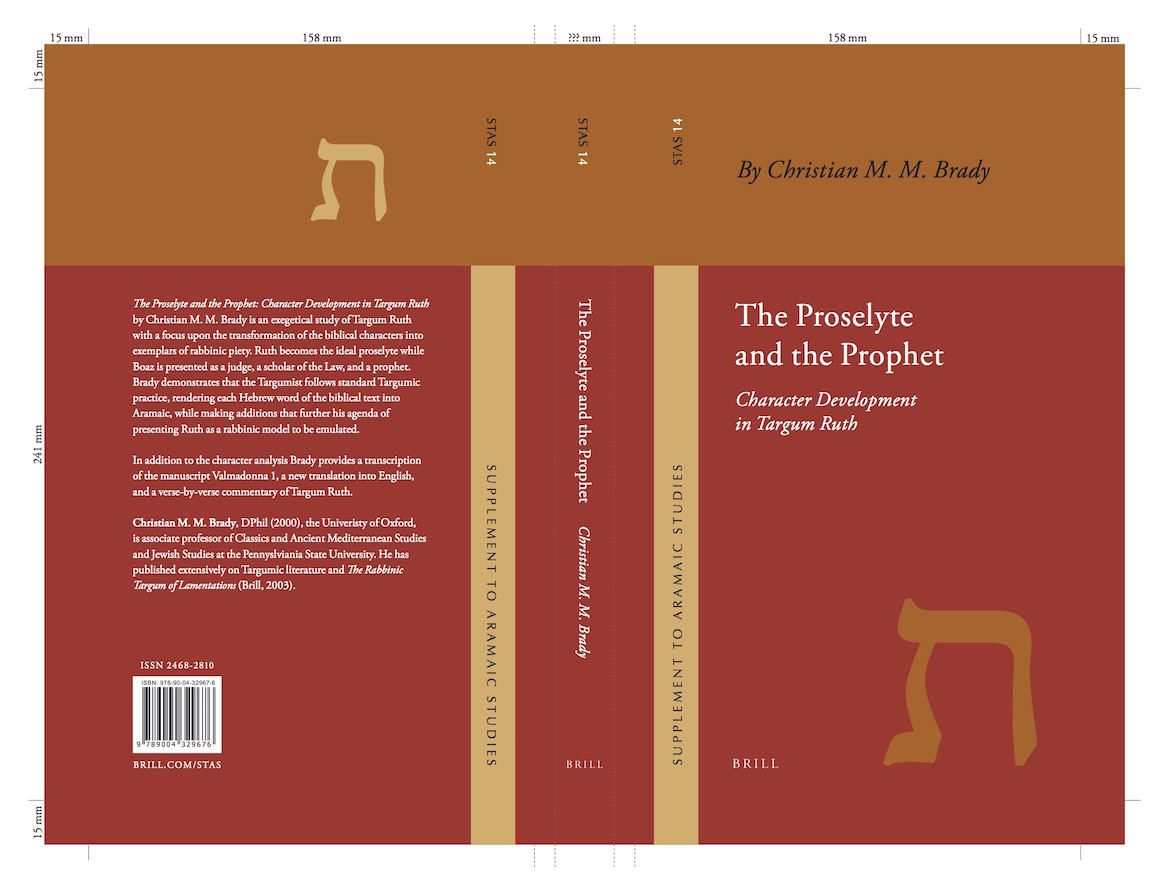The call for the call for papers from SBL yesterday and with it the announcement of new policies. I think they are quite reasonable and should help answer some of the questions and concerns about quality/quantity raised in recent years. This will also mark the first year of the reunification of DDR-BRD AAR-SBL with the welcome news that “the concurrent meetings will encourage the organizations’ members to freely attend each other’s programs and events.” (Emphasis mine.)
The call for papers for Aramaic Studies session will be posted anon.
New Policies for 2011
At its October meeting, the SBL Council motioned and approved the following policies affecting the SBL Annual Meeting. These policies were announced at the Annual Business Meeting on November 21 and take effect immediately. Please keep them in mind as you organize sessions.1. A person is limited to participate in no more than two regular program sessions as a presenter, panelist, or respondent. Please note that this policy pertains to program unit, special, and Affiliate sessions. It does not pertain to committee appearances or presiding.
2. All students without a doctoral degree are required to submit to the Program Unit Chair the full text of the paper they will read. The paper will be submitted at the time of proposal. Student proposers will submit the paper they intend to read, not a full-length paper for distribution in written format. In other words, papers should be limited to 2,000 – 2,500 words.
3. The number of sessions students can participate in will be limited to one. This policy pertains to all forms of participation: presider, panelist, presenter, respondent, etc.These three policies were passed unanimously.
UPDATE: I am sure many of you received this as well, but today I also found in my Inbox an email from AAR inviting me to renew my membership. I am not sure I am glad to see that either (A) they still have my email address on file or (B) SBL shared that information with them.
UPDATE 2: I have been told definitely that SBL has not and will not share member information with AAR. I assume that they simply still have it on record from when I was a member.





22 thoughts on “SBL call for papers – New Rules”
These are good–even as a student I say that. Several of the student papers that I heard were nothing more than literature surveys on the topic that they were *going* to be studying over the next couple years. There was no argument or actual thesis.
any word about charging presenters for AV equipment?
That is up to the venue and the unions. I did not weigh in on this at the time but have since spoken with Bob. We really cannot blame SBL and our ire is misdirected when we do so. This is a function of using convention hotels and spaces along with union contracts. There really is nothing that SBL can do about it.
Nonsense. It is simply a matter of making the availability of such equipment part of the bidding process for the conference: being clear up front that the facilities you require include suitable presentation technology. The failure of the SBL was to allow themselves to be put in this position, probably because whoever did the specific organization of the hotel didn’t think about it. These conference hotels regularly host tech conferences, science conferences, etc where *all* the speakers require video projectors. If they are telling the SBL that they only ever do it this way, or that conference speakers always have to pay for their own projector hire, they are flat out lying.
Ian – It is NOT nonsense. You need to tease apart two aspects of the situation. That the conference hotels/centers charge for technology IS standard and while rates can be negotiated I seriously doubt that any would waive the fee entirely. It is also not uncommon, for reasons of union contracts, for groups that bring their own equipment to still have to pay a fee.
Now, the decision that SBL made to pass that expense along to the speakers is a separate matter. We were told at the chair’s meeting that less than 20% of speakers in the past used A/V equipment. Should all SBL attendees pay an extra $5 to cover that 20%? Of course I imagine that if we all paid the fee more of us would do presentations (and that would not necessarily be a good thing).
Okay, Chris. I’m sorry for the word ‘nonsense’. I was specifically reacting to your statement “There really is nothing that SBL can do about it.” which as you clarify, isn’t the case.
It was a decision that SBL made that they would not make the provision of presentation technology part of their commissioning process, and would then pass responsibility for provisioning and paying for that technology onto individual presenters.
This would not be the most common way the hotel deals with projectors for big conferences. In my experience (not, I have to say, organizing biblical studies conferences!) the incremental cost of having this provision at a conference venue that is geared up for such events isn’t large. My experience is, however, restricted to hotels that are used to those kinds of events.
So it was SBLs decision, and their issue. They can do it differently. Blaming it on the unions or the hotel is unfair, I think.
And yes, I would suggest that every attendee should pay an extra couple of bucks so that presenters are able to use the best means of communication available. To make it the presenters’ responsibility to pay is embarrassing, I think.
Ian, I will then withdraw my “there is nothing SBL can do about it” and modify it to say that SBL’s only option is to pass that cost on to meeting attendees, either to some (as was done this year) or to all (as you advocate). The cost is not minimal, it is, by definition “incremental,” but that increment is fairly large. As I recall from the SBL chairs meeting the usual cost for A/V is in the tens of thousands of dollars. Not an insignificant sum.
I will continue to place the original “blame” with hotels and unions because that is where this cost originates. I worked in hotels for years and in my current position regularly have to negotiate and pay for these costs so this is a matter with which I to am well familiar with. If the hotels didn’t require the extra charge (which the management most often will tell you is a result of union negotiations) then SBL would not have to deal with the issue. SBL does have to deal with it and we are clearly quibbling over how that charge is passed along to users. You might feel it is fine and fair to pass the cost along to everyone, but others would likely feel differently (and many already think we have too many PPTs as it is).
So, as they say, let us light a candle rather than curse the darkness. For their part John Kutsko and Charlie Haws have promised to offer more light and transparency on their decision making process. I think that is the first step to everyone feeling better about whatever decision is made.
“I will then withdraw…” thanks, sorry again for the intemperance.
“I think that is the first step to everyone feeling better about whatever decision is made.”
Yup.
I think perhaps there’s a broad issue here. Is the conference for the benefit of the attendees or the presenters? It feels somewhat like the latter. If that were the case, then it would make sense that presenters would have to pay more than regular attendees, and should be responsible for paying any additional costs that their particular requirements entail. The presenter is like an exhibitor at a trade show – they are extending their reputation and forging new relationships. So they should pay for any flair they want to put into that process.
If the former, then federating out those costs makes more sense. In fact, in some conferences (okay not mainstream academic conferences) presenters have their costs paid. Attendees are being given the benefit of having access to the latest scholarship and direct access to the key figures in the field. They should therefore be paying for the privilege.
I have no opinion on the matter. But maybe that is the cause of the problem. Presenters see themselves as providing the meat, the content for the conference. And are then upset when it becomes clear that they are priced as the prime beneficiaries.
“All students without a doctoral degree are required to submit to the Program Unit Chair the full text of the paper they will read”
Good grief – enforcing a whole new generation of presenters who mumble their way through an essay from behind the podium rather than directly and engagingly speaking to their audience. Can I suggest a new rule? How about all doctoral student presenters are required to have the text of their speech read out by Microsoft’s Text-to-Speech software in the SBL approved “Mike” voice.
Hi Chris, do you have a link for those new policies? I can’t find them.
The statement regarding policies from the council may be found here.
I received confirmation just now that the third point you have placed above is incorrect. Students are indeed limited to one session on a panel, but presiding is not included. So, for example, I may preside over a Student Advisory Board session next year, but this does not exclude me from presenting a paper as well.
To clarify, is this your own summary or did you find the language somewhere and copied/pasted it?
Pat, I think it’s from the call for the call for papers that Charlie sent to the chairs.
Thanks, Eric. Just discovered that. It was a faux pas, with the good intention of trying to clarify, but with incorrect information. On the third point, the first sentence is official policy. The second sentence is mistaken.
Pat, can you clarify for me what you think is mistaken?
Chris, sure. Just to clarify my role, by the way, I’m the Pacific Coast Regional Representative on the Student Advisory Board. I verified this information with Executive Director John Kutsko and Charlie Haws. The initial statement, “The number of sessions students can participate in will be limited to one,” is correct. It is the scope of the meaning of “participation” in question. The restriction for students is that they will only have one opportunity to be either panelist, presenter, or a respondent on a panel. On the other hand, presiding, committee participation, editorial board appearances, etc., will not count towards that single session participation limit for students. So, the language of the second sentence on that third point is mistaken (“all forms of participation” and including “presider”).
I hope I’m making things more clear rather than less. Does that all make sense?
The two sessions per presenter was the rule before, and the fact that people have broken it in recent years should lead to questions for chairs and the SBL as to why this has happened. I still can’t understand why anyone would want to present five times; I guess some are just really bad at saying no.
I can’t even begin to tell you how much I loathe the one size fits all mentality of the rule for students. I do not think it is appropriate at all. If a student presents for each year of their programme (three here in the UK, five? in the US), they will have to submit their paper ten months early on each and every occasion. Why put this onerous requirement onto each and every student ad infinitum. Why put it onto those who have just presented great papers in Atlanta (and there were plenty!!)? And why would anyone think this new rule will improve matters? It seems to me that student papers at the SBL will be in future lack any kind of freshness;after all, they won’t have thought about the paper for months!
Were I an SBL chair (and I am not and don’t ever intend to be), I would ignore the rule, just as the old rule about first time presenters submitting papers was ignored. There are great papers at the SBL and there are crap ones; and the status of the presenter usually has had bugger all to do with which was which!
Ya, I’m with John on this. I don’t see how these new rules guarantee anything in terms of overall quality for the conferences, nor do I see how they are much more than unnecessary additional hoops for doctoral students to jump through. The policy assumes from the get-go that student papers are the cause of a glut of poor presentations at SBL, which was not at all my experience in NO last year…the two or three student papers I saw were excellent, while several papers by long-time PhDs were dismal. Also, by requiring doctoral students to present at places like SBL in order to be considered for jobs later, this policy essentially adds yet another task to the already overloaded list that doctoral students deal with. Sorry SBL, but I think I’m going to focus my efforts on the Canadian Society for Biblical Studies, where they encourage and foster the work of younger scholars.